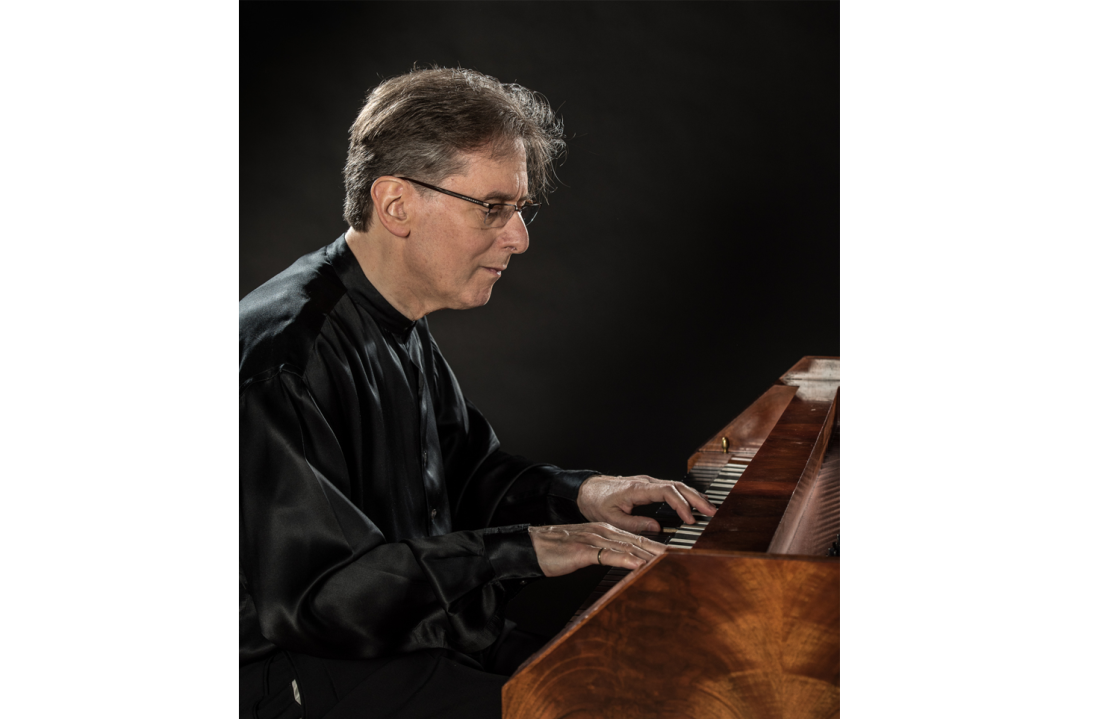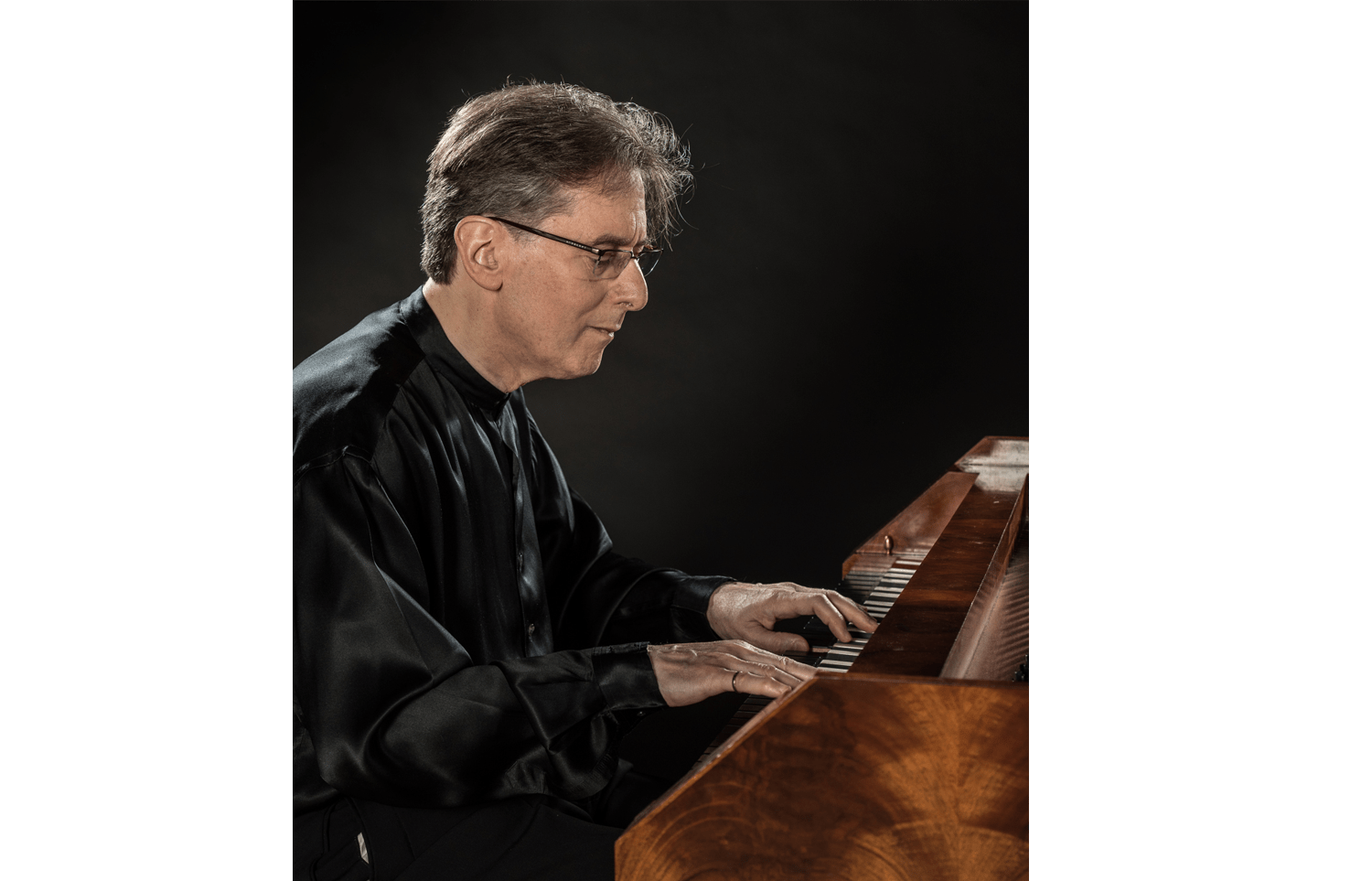In August 1993, the pianist Robert Levin sat down in Walthamstow Assembly Rooms with the conductor Christopher Hogwood and the Academy of Ancient Music (AAM) to record the complete piano concertos of Wolfgang Amadeus Mozart. Mozart was big – the bicentenary celebrations of 1991 had made a global impact. And Hogwood and the AAM were big too. After their groundbreaking period-instrument Mozart symphony cycle a decade earlier, the 27 piano concertos seemed like a wholly achievable ambition. What could go wrong?
‘For Mozart’s contemporaries, what surpassed even his virtuosity was his ability to improvise’
Only, as it turned out, the entire classical record industry. The project was meant to take a decade but in 2000 the record label, Decca, lost its nerve and pulled the plug. Hogwood died in 2014 with the cycle still unfinished. And yet two decades, a global pandemic and two changes of music director later, Levin and the Academy are about to bring it to completion. Since 2021, they’ve recorded four more albums on the orchestra’s own label. When the fifth is released next month, Levin and the AAM will have completed the most comprehensive survey of Mozart’s music for piano and orchestra ever recorded on period instruments – extending far beyond the 27 numbered concertos. Levin still can’t quite believe it.
‘We got eight discs done before Decca decided to can the whole thing,’ he says. ‘It was heartbreaking, and neither Chris [Hogwood] nor I ever gave up on the possibility that it might be resuscitated through some miracle. Chris departed for a better world, and nothing much was happening. And then, after 20 years, to my absolute amazement, the Academy decided to bring it to fruition.’ The final disc includes Mozart’s 25th and 27th concertos, as well as the concert aria ‘Ch’io mi scordi di te?’ (sung by hot-ticket soprano Louise Alder), and its release next month will coincide with the climax of the AAM’s 50th anniversary season.
This is fitting because ever since its foundation in 1973, the AAM has been defined by its recordings. Revolutions always seem inevitable in hindsight, but back then, period-instrument performers were widely perceived as a hippy-ish fringe (one Decca executive dismissed them as ‘the nut cutlet brigade’). It was a Decca producer, Peter Wadland, who first suggested to Christopher Hogwood – a Cambridge harpsichordist with a scholarly bent – that there might be a future in the fad for ‘early music’.
Hogwood and Wadland set out to raise the bar, creating a period-instrument ensemble that could make recordings with the precision and efficiency of a symphony orchestra. Their pioneering 1980 recording of Handel’s Messiah – the first ever on period instruments – became an international bestseller. In 1985, the AAM took Vivaldi into the pop charts (they entered the top 100 between the Eurythmics and the theme from Ghostbusters) and Hogwood duly rocked up at the Brit awards, rubbing shoulders with Madonna, David Bowie and Roland Rat. He accepted the prize from Noel Edmonds – ‘on Vivaldi’s behalf’.
This was Thatcher-era music-making on steroids. The AAM received no public subsidy and when the musicians’ union tried to block the (non-union) Hogwood from performing with his own orchestra, the story went national. The Guardian sided with the shop stewards while Christopher Brooker, in The Spectator, hailed the AAM as champions of artistic free enterprise. But by the 1990s the CD boom had bust and a critical backlash led by the Anglophobic US musicologist Richard Taruskin sought to discredit Hogwood’s no-nonsense interpretations. The Academy of 2024 operates in a very different artistic and financial climate.
Paradoxically, it took another existential threat to revive the Mozart project. ‘The rescue was effected by Covid,’ explains Levin. ‘Orchestras were unable to give concerts and the orchestra’s CEO John McMunn said, “I think we need to do this”. So they launched a huge fundraising effort and, starting in August 2021, we met at various churches – St John’s Smith Square, St Giles Cripplegate – to record the missing concertos.’
Sweet are the uses of adversity: and although it’s upsetting that Hogwood never finished his cherished project, the long delay has meant that both of his successors as artistic director of the AAM – Richard Egarr and Laurence Cummings – have been able to participate in the sessions. Meanwhile Levin’s playing sings, dances and turns somersaults through the whole 30-year story.
‘We need to look back to the reputation that Mozart enjoyed during his heyday,’ he says. ‘His contemporaries valued him as one of the world’s leading keyboard virtuosos. And for them, what surpassed even his virtuosity was his ability to improvise. There’s a passage from one of the first Mozart biographies, by Niemetschek, where he describes a recital that Mozart gave in Prague. He said, “We didn’t know what to admire most. But when he regaled us at the end of the concert with 20 minutes of free improvisation, our feelings turned to pure enchantment.”’
Enchantment is the key, and as a leading Mozart scholar (he was a professor at Harvard) who is also a world-class pianist, Levin is uniquely placed to create it. For decades, he’s been applying his study of Mozart’s manuscripts to his performances – not as an academic exercise, but as a basis for the kind of wildly imaginative, improvisatory approach that electrified Mozart’s own public. Levin extemporises ornamentation when melodies are repeated, just as 18th century performers might have done. And famously, where Mozart left space for a cadenza – a long gap in the score where the pianist (originally Mozart himself) was expected to improvise, jazz-like, in a dazzling display of imagination and skill – Levin accepts the challenge and wings it, every single time.
There is a feeling of risk, of shooting for the moon. That sets our Mozart apart from others
‘That puts me in a particularly interesting position because, with few exceptions, most of Mozart’s piano concertos were performed by him only once or twice in his lifetime,’ Levin says. ‘So I’ve improvised more cadenzas than he ever had to! With a piece like the Concerto No. 24. I’ve probably improvised 40 or 50 cadenzas to it over my performing career.
‘But if you’re interested in narrative, then being creative is important. If a masterpiece simply becomes comfortable, like a pair of ratty bedroom slippers, that’s not the same thing as inviting the audience into something which will give them a unique state of mind and spirit. They relish the fact that I am walking to the edge of a precipice and shooting a crossbow to the far side – where miraculously, the orchestra is waiting.’
Doesn’t a recording trap that spontaneity in amber? ‘Yes, but you can buy a recording of Oscar Peterson playing at the Montreux Jazz Festival and every time you play the disc, you’ll hear the same notes. But you’ll understand that what you are hearing is an improvisation. There is a feeling of risk, of shooting for the moon. I think people latch on to that, and I think that sets our Mozart cycle apart from all others.’
Well, that, perhaps, and the whole 30-year saga of its genesis: a story of hope, loss and renewal, and a life’s work animated (despite everything) by a spirit of adventure. For Levin, Mozart’s music is a tale that never ends: it’s never the same twice. ‘The sense of amazement at Mozart’s creative imagination never flags,’ he says. ‘There’s always something new that you hear and discover. But as I’ve always said to my students, if you’re not telling a story why should anyone listen?’
Volume 13 of the Academy of Ancient Music’s complete cycle of Mozart’s music for piano and orchestra with Robert Levin is released on the orchestra’s own label
next month.








Comments